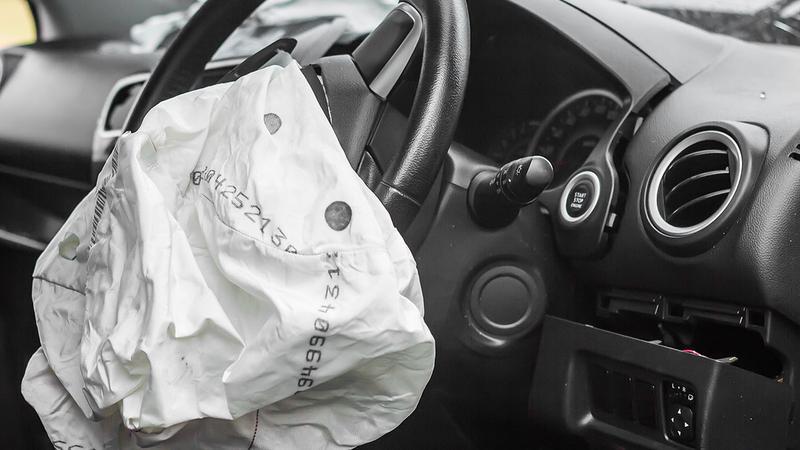- Collision coverage will pay for damages to your vehicle from an accident that you are wholly or partially at fault for having caused. There is a deductible.
- When safety isn’t an issue, the decision to write-off or repair a vehicle is based on answering the question: What is the most financially responsible option?
- Repair costs factor into the decision, as does the car’s worth before the collision and the vehicle’s salvage value if it’s sold for parts and metal.
When you’re in a collision, who decides if a car is worth repairing or if it should be written-off?
When cars collide, and one of them is yours, you can bank on there being damages to your vehicle that will need to be repaired. And when you submit an auto insurance claim for the damages caused, who decides if the repairs are worth the cost? After all, it is your car, and you might think you have a say in the matter.
The reality is, if you have the necessary coverage, it’s the insurer that decides if your vehicle is fixed or if it’s better to write it off and cut a cheque that you can use towards the purchase of a new car.
What coverage is needed?
Collision coverage will pay for damages to your vehicle from an accident that you are wholly or partially at fault for having caused. There is a deductible. However, it’s an optional coverage that not all drivers buy. Without it, you’ll be entirely on the hook for the costs to repair your car.
What happens if you’re 100% not at fault for the collision? It will depend on where you live.
For example, in Ontario and Quebec, the damages will be paid through your policy’s Direct Compensation – Property Damage (DC-PD) coverage. DC-PD is standard on policies in these two provinces. In Alberta, on the other hand, damages would be covered through the at-fault driver’s insurance. But changes are afoot in Alberta. In early 2022, Alberta will shift gears and move towards these types of damages being paid through DC-PD as well. Not-at-fault drivers will go to their insurer to cover the repairs needed.
How is it decided to repair or write-off?
When safety isn’t an issue, the decision to write-off or repair a vehicle is mainly based on dollars and cents. It’s based on the answer to the question: What is the most financially responsible option?
Car repairs can be costly even for damages that seem minor, especially in today’s high-tech vehicles. But it’s not just the cost of repairs that determines whether your car is fixed or written-off. It’s the value of your vehicle too.
A $5,000 repair job, for example, may make sense if your car is valued at $20,000, but it’s not so cut-and-dry if it is valued at $10,000. That’s because another dollar amount is layered into the decision: the vehicle’s salvage value. That is the amount of money your insurer can get for the car in its unrepaired state, usually for parts or scrap.
Your insurer chooses the option -- to repair or write-off -- that will make you whole again in the most cost-effective way for them.
What happens if it's decided your car is worth repairing?
If it’s decided that repairing your car is the best option, you generally have two choices on how to get your vehicle back on the road:
- You can get the work done at one of the repair shops with an established relationship with your insurance company. These shops have an agreed-upon pricing structure for repairs and are trusted by the insurers to do the job correctly.
- You can get the work done by a mechanic chosen by you. If you go this route, it’s worth noting that your insurer will only cover the costs up to the amount their preferred shops would charge. You’ll also be responsible for ensuring your satisfaction with the repairs within this dollar amount.
What happens if it’s decided your car is a write-off?
If your insurer writes off your car, you’ll receive a cheque for its pre-collision value minus your deductible, if applicable. Your vehicle’s pre-collision value is how much you could have gotten for your car if you had sold it before the accident occurred. The assessed value takes into account depreciation, as well as things like:
- The year, make, and model of the vehicle
- How many kilometres are on the vehicle
- The overall condition of the vehicle, inside and out, and under the hood
- After-market equipment you may have added
- The state of the vehicle’s tires
If your vehicle was new when you bought it and still has that “new car smell”, you may have opted to add a “Depreciation Waiver” endorsement to your policy. If so, the assessed value does not factor into your settlement. Instead, you’ll receive the total amount of what you paid for your car without depreciation. This waiver is usually available for the first two years that you own the vehicle.
Low auto insurance rates are no accident
Having the lowest auto insurance rate is no accident when you shop around. Compare car insurance quotes today from 30+ providers in a single search at InsuranceHotline.com.
